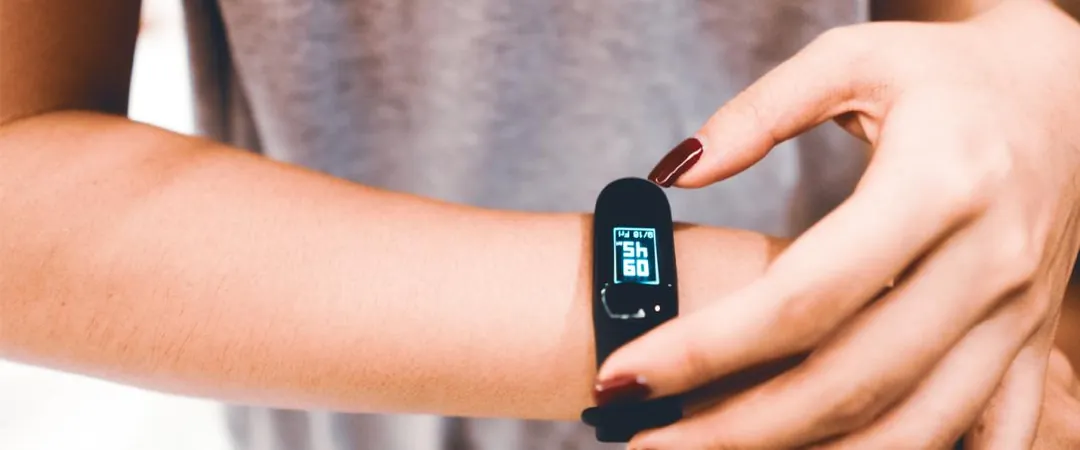
Revolutionary Fitbit Technology Could Predict Mood Changes in Bipolar Disorder Patients
2025-06-12
Author: Ming
Transforming Mental Health Monitoring with Wearable Tech
In a groundbreaking study, researchers are harnessing the power of Fitbit devices to predict mood shifts in individuals with bipolar disorder (BD). As technology advances, its integration into psychiatric care offers promising new avenues for diagnosis and treatment.
Understanding Bipolar Disorder's Mood Swings
Bipolar disorder is characterized by extreme fluctuations in mood and energy levels, leading to significant cognitive and functional challenges. High-energy phases, known as mania or hypomania, require medical intervention, while depressive episodes are often treated with a variety of medications. The unpredictability of mood changes not only affects individuals’ day-to-day lives but can also worsen their overall well-being.
New Insights on Mood Instability
Recent research from Dr. Sarah Sperry and her colleagues has challenged the traditional view of mood stability in bipolar patients. They found that many individuals experience significant mood instability even between major mood episodes, which could significantly impact care strategies.
Fitbit's Role in Predictive Analytics
Led by Dr. Jessica M. Lipschitz, a team from Brigham and Women’s Hospital explored whether data from Fitbit devices could accurately predict mood transitions. Their goal? To empower patients and clinicians by providing timely alerts for mood changes, potentially preventing severe mood episodes.
Why Fitbit? A Game-Changer in Patient Monitoring
The team opted for Fitbit due to its accessibility, affordability, and ease of use. Unlike previous methods that required invasive data collection or cumbersome devices, Fitbit passively collects data, such as sleep patterns and heart rate, without needing user input, making it ideal for real-world application.
Promising Results from Clinical Trials
In trials involving 54 participants diagnosed with either Bipolar I or Bipolar II disorder, the machine learning algorithm identified in the study demonstrated impressive accuracy. Clinically significant depression was predicted with 80.1% accuracy, while manic and hypomanic symptoms were forecasted with 89.1% accuracy.
The Future of Mental Health Care
These findings are critical, as they show that passive data collection can be both non-intrusive and highly effective. The researchers believe this approach could revolutionize how bipolar disorder is monitored and treated, streamlining care for patients.
Key Predictive Elements Uncovered
The analysis revealed that heart rate patterns and sleep metrics were vital indicators for predicting mood changes. Interestingly, average daily heart rate correlated with (hypo)mania, while resting heart rate was more significant in predicting depression. This vital information not only enhances predictive accuracy but also sheds light on the biological underpinnings of mood disorders.
Expanding Horizons for Bipolar Disorder Research
Looking ahead, researchers stress the need for further studies with diverse samples to confirm these findings. The integration of Fitbit devices into regular clinical practices could usher in a new era of accessible and effective mental health care, empowering patients and caregivers alike.



 Brasil (PT)
Brasil (PT)
 Canada (EN)
Canada (EN)
 Chile (ES)
Chile (ES)
 Česko (CS)
Česko (CS)
 대한민국 (KO)
대한민국 (KO)
 España (ES)
España (ES)
 France (FR)
France (FR)
 Hong Kong (EN)
Hong Kong (EN)
 Italia (IT)
Italia (IT)
 日本 (JA)
日本 (JA)
 Magyarország (HU)
Magyarország (HU)
 Norge (NO)
Norge (NO)
 Polska (PL)
Polska (PL)
 Schweiz (DE)
Schweiz (DE)
 Singapore (EN)
Singapore (EN)
 Sverige (SV)
Sverige (SV)
 Suomi (FI)
Suomi (FI)
 Türkiye (TR)
Türkiye (TR)
 الإمارات العربية المتحدة (AR)
الإمارات العربية المتحدة (AR)